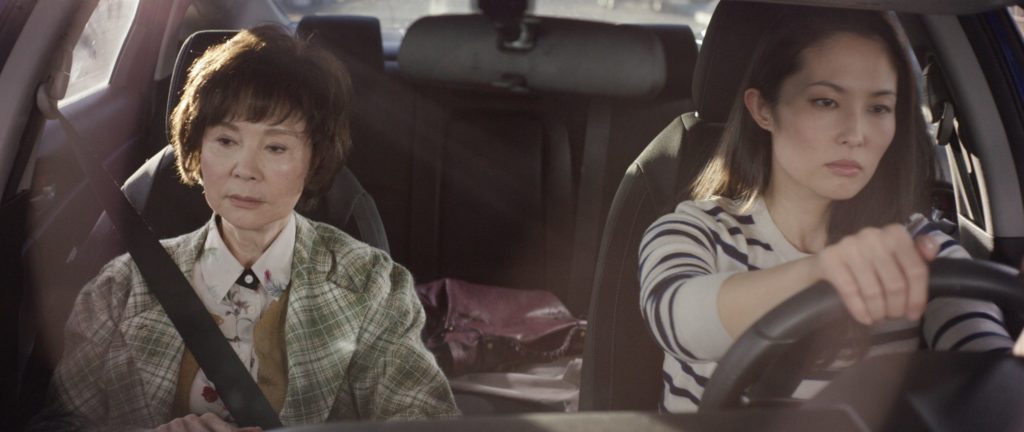
It’s a heady time for Asian filmmaking, from the Oscar for Japan’s “Drive My Car” to the recent premiere of the Korean-American streaming series “Pachinko.” Fitting well among them is “Beneath the Banyan Tree,” the first feature from screenwriter and Chinese-American director Nani Le Yang.
Like last year’s “Minari,” “Beneath the Banyan Tree” is about the adjustment of an Asian family to the U.S., and particularly the stern disapproving eye of an elderly matriarch, whose ideas about family and tradition become shattered not only by happenings in her own clan, but in the world at large.
It centers on a young woman, Ai-Jai (Kathy Wu), who had moved to the U.S. a decade earlier to become a writer but currently makes a living by being a tour guide for visiting Asians to the Hollywood landmark that is the Chinese Theatre (a clever detail, since that 1920s Hollywood Boulevard landmark never had anything to do with the China outside of its theme park architecture).
Ai-Jai would have more time for writing, too, if she didn’t have an unexpected houseful of relatives suddenly moving in. Her niece and nephew have come over from China to live, brought by her stern and judgmental mother. They needed a new home because the kids’ parents had been jailed in China for corruption. That the golden son of whom so much was expected became such a disappointment is enough for Ai-Jai’s visiting mother to take in. But she’s also looking down at her daughter’s lifestyle, her American husband, and her career — though the tour guide part has been hidden from her mother, allowing her to continue to think she’s become a successful writer.